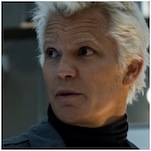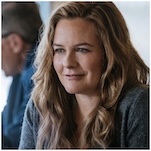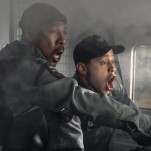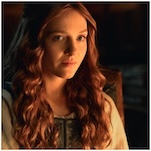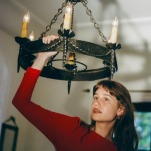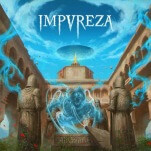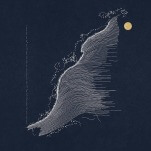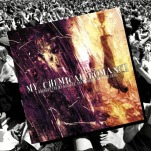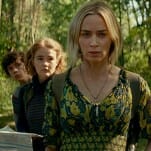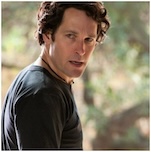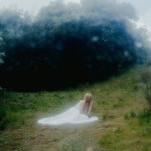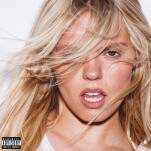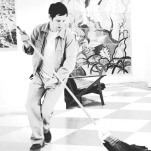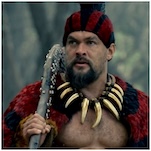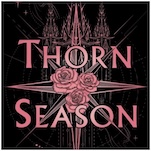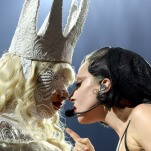How A Very Royal Scandal Makes Prince Andrew’s Downfall a Cautionary Tale for Our Modern Moment
Michael Sheen and Ruth Wilson discuss A Very Royal Scandal's surprisingly timely themes of power, privilege, and consequences.
Photo Courtesy of Prime Video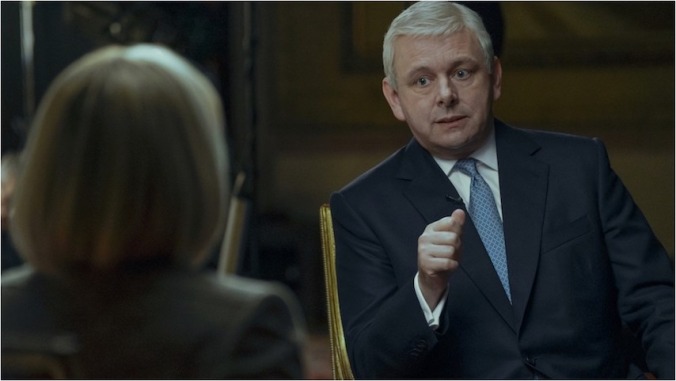
Prime Video’s A Very Royal Scandal has more depth than you might initially assume from its title. To be fair, that’s always been true of this anthology series, which has attempted to find deeper meanings in our cultural fascinations with the sins of powerful figures and the public reckoning they have (or most often have not) faced. This latest installment delves into the bombshell 2019 BBC Newsnight interview in which England’s Prince Andrew was grilled about his ties to sex trafficker Jeffrey Epstein, and because the events it covers are more recent than its predecessors—A Very British Scandal and A Very English Scandal both dealt with infamous court cases from several decades ago—Royal Scandal has a decidedly more modern mindset about its larger purpose.
The three-part series, which stars Ruth Wilson as award-winning journalist Emily Maitlis opposite Michael Sheen as Prince Andrew, takes pains to tell a story that’s about more than just the interview that brought down the infamous “Randy Andy” and ended his career as a working member of the Royal Family. Eager to be something more than a simple recreation, the series not only follows both Maitlis and the prince in the days leading up to the Newsnight broadcast, it delicately picks its way through the fallout afterward, finding uncomfortably timely parallels in how we question those in positions of power.
Sheen—a man already well known for portraying real-life people onscreen—has outdone himself this year by playing two of the U.K.’s most famous figures, though the men in question could not be more different from one another. His leading role in the National Theatre’s Nye saw him transform into Aneurin Bevan, the beloved Labour politician who spearheaded the creation of Britain’s National Health Service and an icon to many throughout the United Kingdom. But for the actor, portraying the two men fairly close to one another led to the realization of some unexpected parallels.
“It was interesting because I did literally go from finishing filming on this into rehearsing Nye,” Sheen tells Paste. “And so I was thinking about both of them at the same time, and it did make me think about the idea of the pursuit of power and the opportunities of privilege, and how differently you can use those things, and what you can put them to the service of. It was quite striking.”
To say that portraying two men as different as Bevan (a Welshman from a Tredegar mining family) and Prince Andrew (the second son of Queen Elizabeth II) is a challenge feels like a massive understatement. But for Sheen, much of the work, at least from a character-building, was the same.
“With Aneurin Bevan, there’s very little footage of him, so there was very little to go on,” he says when asked about his approach to playing two such very different men—with such very different legacies. “There’s lots written about him but very little to look at. And so piecing both of these characterizations together were very different kinds of processes. But I think what informs them both is—you’ve got to put your personal opinions aside, your judgments of characters you’re playing. Because, ultimately, you have to be looking out from behind their eyes and playing a rounded, complex character rather than an editorialized version of them.”
And to hear Sheen tell it, his performance—even when playing someone more like Andrew than Nye Bevan—still comes from many of the same places, both as an actor and an individual.
“[The performance] has got to be coming from somewhere. There’s got to be some compass that is guiding you in… I look for vulnerability, I look for contradiction. I look for when a person is getting in their own way, that kind of stuff. That’s my compass as an actor,” he says. “But then, there’s also my compass as a citizen, which you’re also putting into it. Your performance sits in the context of certain things you believe about the world and how things work in it. Inevitably, those two things, they’re sometimes the same compass and sometimes not. But they work the same for whatever character it might be.”
A Very Royal Scandal is the second drama about the infamous Newsnight interview to hit our screens this year, and while it takes a different angle on the story than the Netflix film Scoop, its central tension still revolves around Prince Andrew’s disastrous on-air performance and the fallout that ensued. But perhaps not quite for the reason that most people think.
“I think part of the reason is that it was so rare,” Ruth Wilson, who plays journalist Emily Maitlis, says when asked about why we’re so endlessly fascinated, culturally speaking, by this specific moment. “It is so rare to have someone in such a position of power willingly put themselves under such scrutiny. That doesn’t happen for people in power. It just doesn’t. They have lots of PR people around them to prevent that from being the case.”
The interview was a trainwreck on multiple levels, from Andrew’s inability to express anything remotely resembling sympathy for Epstein’s victims and his lack of remorse over his friendship with a convicted pedophile to his increasingly bizarre alibis for the night he was alleged to have met Virginia Giuffre, a woman who accused him of statutory rape. But beyond the royal humiliation angle of it all, the public response touched on many larger issues.
-

-

-

-

-

-

-

-

-

-

-

-

-

-

-

-

-

-

-

-

-

-

-

-

-

-

-

-

-

-

-

-

-

-

-

-

-

-

-

-





